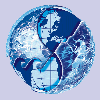 |
 |
 |
||||||||||||||||||||||||
PROGRAMME OF PRIORITY ACTIONS
This topic deals with both: - integrated management of water resources, and - services for the supply and use of the resources, including sanitation. As the Harare experts group meeting recalled, an integrated approach requires a significant reinforcement of institutional and human capacities at both national and local levels in a complementary manner, associating civil society at each of these levels. These actions require, to be effective and durable, strong political will and long-term financial commitment.
II - D - INSTITUTIONAL CAPACITY BUILDING II - D - 1 - role of public authorities In order to improve management of the water sector, it is important to support integrated and multi-year projects for the establishment and improvement of administrative, financial and technical frameworks. These projects should take into account the specific needs, capacities and culture of each country and address in particular:
II - D - 2 - role of local authorities Devolution to local authorities of responsibilities for organisation and management of public water supply, sanitation services and irrigation systems should be encouraged. The following objectives merit particular attention:
II - D - 3 - participation of civil society The participation of civil society and the general public in the planning, design and funding of programmes requires:
It is recommended that a significant share of official development assistance for large infrastructure, equipment and institutional reform projects be allocated for the promotion of these activities.
II - D – 4 - implementation of management tools for transboundary freshwater bodies Considering inter alia the relevant chapters of Agenda 21, the Rio Declaration, and the programme for further implementation as adopted by the U.N. General Assembly, riparian states are encouraged to co-operate among each other on matters relating to transboundary water resources, taking into account the interests of all states concerned. To this end, it is desirable inter alia to:
There are more than 215 transboundary rivers in the world. The action of bi- and multilateral donor institutions in the field of transboundary freshwater resources development and management should be enhanced and facilitated. The Global Environment Facility should take into account this Programme of Priority Actions under its existing relevant focal areas to build body-based operational programme activities which meet Global Environment Facility guidelines. In particular, capacity-building projects should include action in support of dissemination of information and awareness raising among political and technical decision-makers and to support preliminary feasibility studies at the national level when these are consistent with overall national development strategy in the countries concerned.
II - D - 5 - collection and dissemination of economic information : We should strengthen studies which aim to improve knowledge of water costs in the different uses, to monitor performance and to provide economic indicators at national and regional level, taking into account the interests of the states concerned, Monitoring mechanisms should be developed or established on an appropriate scale. In order to define and standardise their methods, to disseminate and compare their results, on a voluntary basis, they should have sufficient means to carry out these programmes and research and facilitate their co-ordination in international co-operation networks.
II - E - HUMAN RESOURCES DEVELOPMENT Among the different aspects of human resources development, that of the multidisciplinary and multisectoral training and information of both professionals and users in the water sector is a prerequisite for the optimum use of water resources and the cost-effectiveness of facilities.
II - E - 1 - vocational training for professionals Funding in this field should progressively and significantly increase. In-service vocational training can only be sustained through funding by public and private employers in the water sector. Particular attention should be paid to the training of women at all levels. ODA should give priority to the establishment and development of regional training focal points, while developing as a first step the educational capacities of existing training institutions. Depending on requirements and situation, this could be implemented by setting up training institutions specialised in technical and managerial aspects of the water sector at a national or regional level. The training of trainers and the development of necessary educational materials could be promoted by organising these training institutions into networks.
II - E- 1-1 - training of high-level professionals The formulation and implementation of water policies based on the principles of integrated water resources management, require the appropriate training of high-level professionals.
II - E - 1- 2 - training of operators Training the least qualified staff (who represent the majority of workers in the sector) by using appropriate in-service training methods should be given a high priority. Vocational training leads to the improvement of:
II - E - 2 - research and transfer of technology : National and regional research programmes linked to higher education, especially these relating to integrated water and land management in watershed areas and the functioning of water-related ecosystems, should be developed. Exchange of know-how and technology should be promoted, including among developing countries, taking into account indigenous technologies. The international community has a particular responsibility in this field.
II - E - 3 - awareness, information and education of users: Water management is not only the responsibility of the professionals of the sector but also increasingly involves all the users and local populations. Water and land users alike should be made more aware of issues relating to wastage control, the economic, social and cultural value of water, prevention of water-borne diseases and pollution, soil erosion and environmental protection. This requires a global and transdisciplinary approach integrated into the culture, know-how and traditions of local populations. Specific actions should be strengthened to enable women to participate fully and equitably in the formulation and management of projects. |
|||||||||||||||||||||||||
